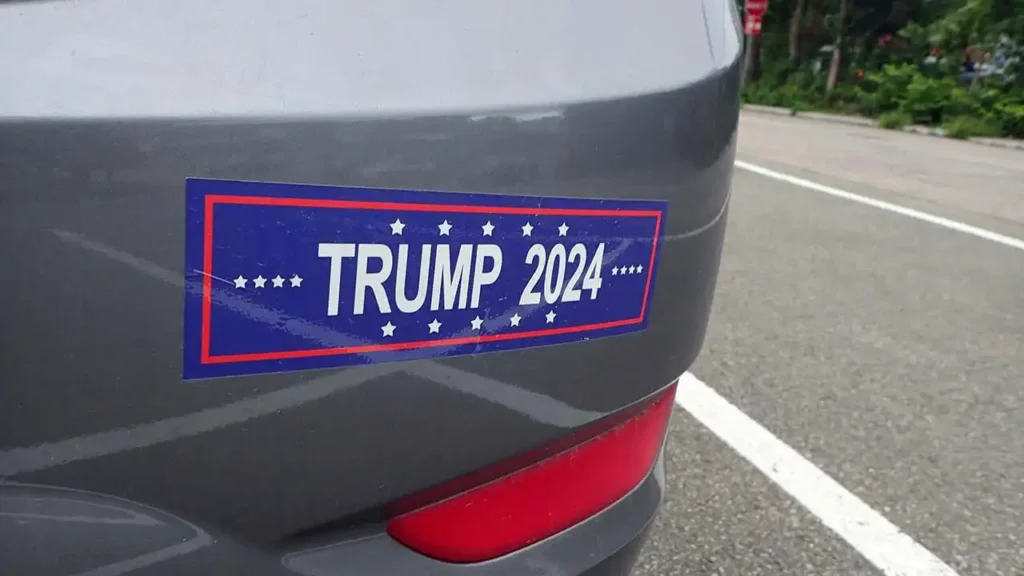With Republicans’ new trifecta of control over the White House, U.S. Senate and House of Representatives, it’s likely federal marijuana policy will change.
But what could – or should – federal marijuana policy look like under a new Trump administration?
As an industry veteran, I want the new administration to know state-regulated operations and priorities of the marijuana industry are largely aligned with both Trump’s stated policy priorities and those of the Republican party.
I sincerely hope that newly elected leaders will enact industry-friendly federal policy changes.
State of the cannabis union
While federal law continues to expressly prohibit marijuana as a Schedule 1 drug under the Controlled Substances Act, over the past 15 years, U.S. enforcement priorities have evolved.
States have been given leeway to establish legal frameworks, creating today’s complex and confusing legal and regulatory landscape where state and federal laws conflict.
Earlier this year, the U.S. attorney general recommended what could be the most significant change in marijuana’s legal status under federal law since 1970: reclassifying marijuana as a Schedule 3 controlled substance.
Yet, if you ask any cannabis industry advocate, they will tell you this move is too little, too late.
During his campaign, now President-elect Trump publicly expressed support for cannabis, “smart regulations” and ending “needless arrests and incarcerations.”
He said that, as president, he would support reclassifying marijuana as a Schedule 3 controlled substance and “work with Congress to pass common sense laws” including SAFE(R) banking, thereby “supporting state’s rights.”
What lies ahead?
Will we see bigger changes at the federal level with the new Trump administration or more of the same?
Here are my top industry facts that make the case for reform:
1. Cannabis legalization has widespread public support.
Public support for federal legalization is at an all-time high.
A recent Pew Research Center poll found an overwhelming share of U.S. adults (88%) say marijuana should be legal for medical or recreational use.
Over half of Americans say legalizing marijuana for either medical or recreational use is good for local economies.
2. Most Americans support freedom from government interference.
For several decades, Gallup public opinion polls have asked Americans if they support a reduced role for the government in their lives.
A Gallup poll from September 2024 found 55% of Americans – including an overwhelming 81% of conservatives – say the government is trying to do too many things that should be left to individuals and businesses.
3. The cannabis industry employs hundreds of thousands of Americans (and is growing).
State-regulated cannabis businesses employ more than 440,000 full-time workers, making the sector:
11 times larger than the coal industry (40,000 workers).
Almost five times bigger than the U.S. apparel-manufacturing industry (around 90,000 workers).
Larger than the solar industry (279,000 workers).
The state-regulated cannabis industry added almost 23,000 new jobs in 2023, a 5.4% year-over-year increase.
Those numbers are especially impressive considering the vast majority of business owners and workers in the U.S. cannabis industry undergo thorough background checks and most state regulatory frameworks prohibit employing workers with substantial criminal backgrounds.
4. All regulated marijuana products for sale in the U.S. are grown and manufactured here.
State regulations (and federal law) prohibit the import of marijuana into the United States, except for research purposes.
Sales of “made in America” grown and manufactured cannabis products are projected to reach $53.5 billion by 2027.
5. The regulated marijuana industry faces unfair, crippling tax burdens and has been targeted by the IRS.
Section 280E, the archaic provision of the Internal Revenue Code, effectively penalizes licensed cannabis businesses that play by the rules and operate under strict state regulations by disallowing ordinary and necessary tax deductions available to other businesses.
The IRS primarily enforces this outdated provision only against licensed retailers, not those operating in illicit markets.
The Trump campaign proposed significant tax reform for American companies, including a 15% tax rate for U.S. manufacturers and the immediate deductibility of certain capital costs.
If marijuana is reclassified as a Schedule 3 substance, this tax approach would apply to cannabis businesses.
6. The U.S. cannabis industry is overregulated.
Because marijuana remains federally illegal, it’s overregulated.
A 2019 report found that overregulation is one of the primary reasons that people might stay in the illicit market.
7. Legalizing marijuana in states has significantly decreased illegal trafficking of cannabis across the U.S. border.
Cross-border transport of cannabis has decreased significantly since states began regulating marijuana and growing their own.
U.S.-Mexico border marijuana seizures were down 88% between 2018 and 2022.
8. Members of the conservative U.S. Supreme Court might agree it’s time for federal marijuana law reform.
As U.S. Supreme Court Justice Clarence Thomas noted in his comment in Standing Akimbo v. United States in 2021, “A prohibition on intrastate use or cultivation of marijuana may no longer be necessary or proper to support the Federal Government’s piecemeal approach.”
If President-elect Trump and the Republicans stand by their policy principles, the state-regulated U.S. marijuana industry should be on the precipice of significant, beneficial change.
To quote Trump’s former presidential rival, Vice President Kamala Harris, “We have so much more in common than what separates us.”
H/T: mjbizdaily.com



